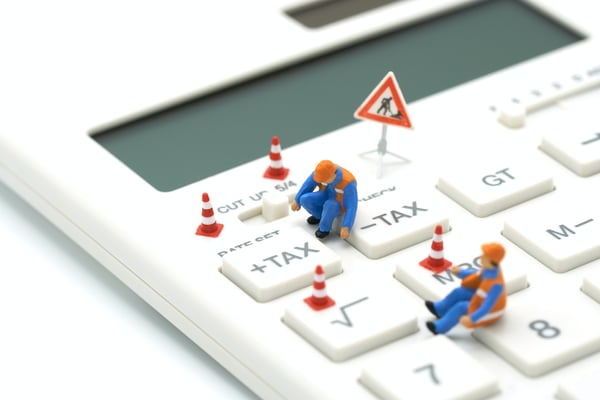It’s important to plan and track all relevant accounts before starting a construction business. Whether you’re an employer or contractor, being able to manage assets, workers, deadlines and all project aspects is crucial to the success of a business. It is especially important as, unlike regular accounting, construction accounting is very fluid – the business environment is constantly changing as work is project-based.
Need help managing projects?
Below are some helpful tips before you start incorporating construction accounting into your business:
1. Stay Up to Date

Having a fast-paced job includes completing lots of tasks and aspects in a minimal amount of time. Making accounting a part of your daily workflow will ensure that you are organised and not falling behind schedule. Purchasing insurance is a basic cover for the business and its costly equipment. Hiring a bookkeeper or accountant is also generally recommended.
Considering you are dealing with so many accounts, having a bookkeeper to manage and process expenses, bills and progress invoices is highly beneficial. Accountants also help in advising the best ways to structure your accounts and save money and taxes. With this in mind, it’s also important to understand the concepts of how accounting works and the relevant terms.
2. Know the Details
Having a full understanding of accounting and the necessary requirements to operate a successful business will be beneficial in the long term. If you’re planning to conduct the accounting yourself, it is essential that you know the different types of accounting available.
As mentioned earlier, incorporating accounting into your workflow is important. This being said, understanding regulations and implementing them can vary. Cash accounting is generally used for small-scale projects. This is when the revenue is recorded on an income statement, only after the cash is received, and expenses are only recorded when they are paid out.
On the other hand, accrual accounting is a more modern method. Used for larger scale projects, revenue is accounted for when it is earned and typically recorded before it is received. Expenses are also recorded before they are paid out. Depending on your project, getting advice from your bookkeeper or accountant will help you decide what is best for the business as both accounting methods have pros and cons.
Need more work for your machines? Get your company listed on iseekplant for free today!
3. Use the Best Software
There is now a range of software available to use, varying from low to high. Having a software platform will not only save you time, money and resources, but it will also be extremely convenient in keeping track. Software versatility allows easy tracking of revenue, income and expenses. Depending on the software, certain programs can accommodate specific business sizes.
4. Traps and Preliminary Cautions
Keeping a Balanced Cash Flow
Maintaining a good cash flow can be difficult for small business owners if your budget doesn’t include bookkeepers or accountants. Large expenses should be matched with big revenues. Accurately estimating bills and payments, along with not delaying change orders will help keep a healthy cash flow. Invoicing your client regularly and getting payment upfront will help avoid bad debts in the future.
Request Deposits
Requesting deposits is also good to consider when starting projects. Small businesses are entitled to incorporate deposits into their contracts. Progress payments in larger projects are also feasible to ensure your expenses, employees and contractors are covered.
Avoid Under-Billing
Unfortunately, under-billing is very common in the construction industry. Make sure to outline your payment needs to avoid getting under-billed for the project you're working on. This also applies to paying employees on time to maintain a positive cash flow.
Adding a Contingency
Weather, equipment, client changes, and other unexpected factors can delay schedules and incur extra costs within the construction industry. Pre-planning and contingency funds are both important to alleviate risks and mitigate future emergencies. This is an effective risk management strategy.
5. Just Do Your Taxes

For any type of business - small, medium or large - it is important to keep track of your taxes and plan before construction commences. Keeping a good record and knowing how to lodge and prepare taxes (through quarterly or annual instalments) is crucial in preventing your business from going under the bus.
Your bookkeeper or accountant will provide you with all the up-to-date information. It is recommended to refer to your relevant government websites for tax guides if you are seeking more information.
If want to keep up to date with all the latest industry and project news - subscribe to iseekplant’s Constructionsht blog below!


